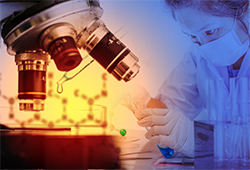
Big Molecule Watch monitors for biosimilar clinical trial results. Here we report on four recent announcements concerning biosimilars of natalizumab, trastuzumab, daratumumab, and aflibercept.
On January 23, 2023, researchers published the results of a phase III clinical trial demonstrating that PB006, Polpharma Biologics SA’s biosimilar to Biogen’s approved treatment TYSABRI® (natalizumab), showed similar efficacy, safety, and immunogenicity to TYSABRI® in patients with relapsing-remitting MS (RRMS). The researchers found that, “[i]n this randomized, double-blind phase 3 clinical trial, 264 adult patients with RRMS received treatment with either biosim-NTZ or ref-NTZ. At week 24, the model-based mean difference in the cumulative number of new active lesions was similar between treatment groups.”
On January 31, 2023, researchers published the results of a phase III clinical trial of HD201—Prestige Biopharma’s biosimilar to Genentech’s HERCEPTIN® (trastuzumab). The researchers found that “HD201, a trastuzumab biosimilar, was shown to be equivalent to the referent trastuzumab in patients with ERBB2-positive early breast cancer (EBC) based on the primary endpoints of locally assessed total pathologic complete response (tpCR).”
On February 1, 2023, Henlius announced that the first subject was dosed for a phase 1 clinical trial of its daratumumab biosimilar HLX15. The study will compare the pharmacokinetics, safety, tolerability, and immunogenicity between HLX15 and daratumumab injection in healthy Chinese male subjects. Henlius said “[t]he indication to be developed for HLX15 is multiple myeloma (MM), which is an incurable clonal plasma cell dysplasia, the second most hematological malignancy which mainly develops in elderly population.” In the United States, daratumumab is sold by Janssen under the trade name DARZALEX®.
On February 6, 2023, Formycon announced that its aflibercept biosimilar FYB203 showed comparable efficacy to Regeneron’s EYLEA® reference product in the MAGELLAN-AMD study, a phase III clinical trial in patients with neovascular age-related macular degeneration. The primary endpoint of the study measured the change in best corrected visual acuity after eight weeks from baseline. In its press release, Formycon noted that “Eylea® is currently the top-selling drug in the field of age-related eye disease and in 2021 achieved revenues of around US$ 9 billion.”
